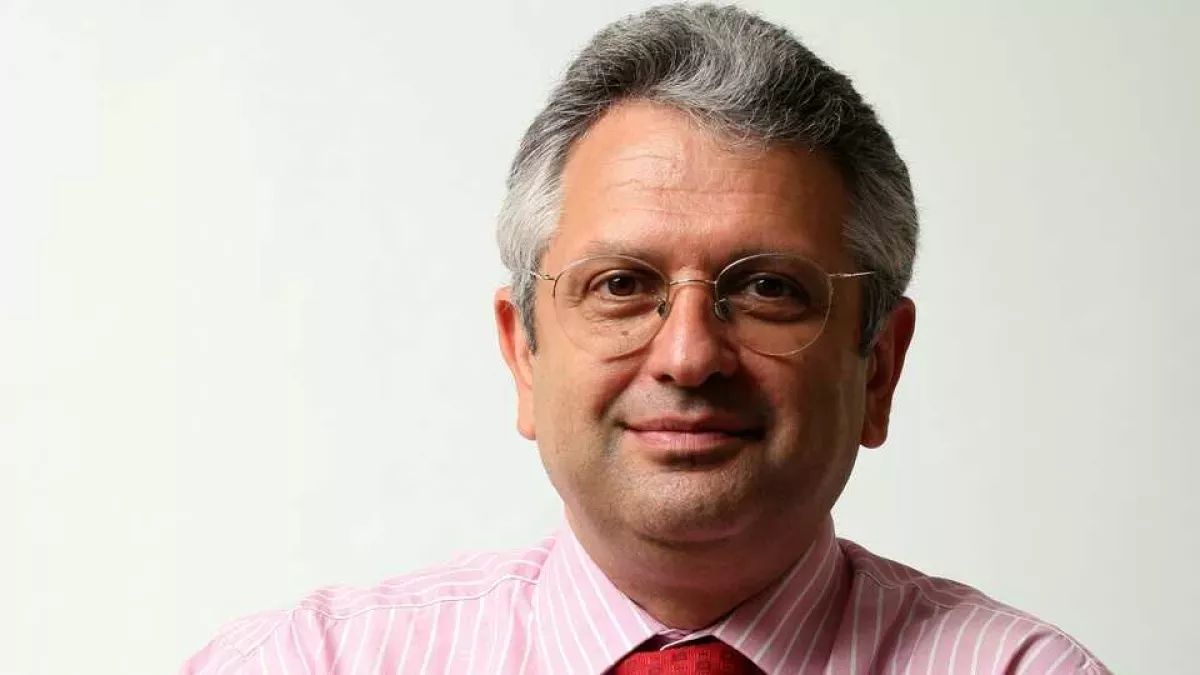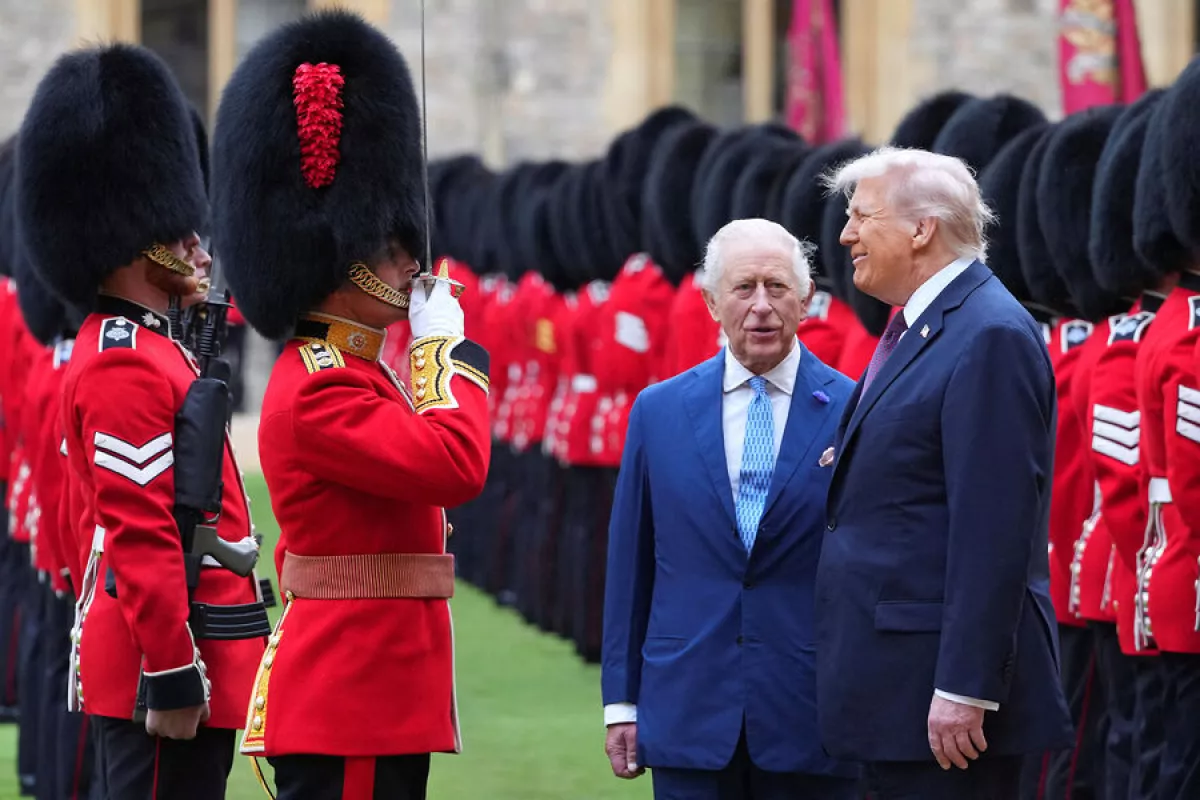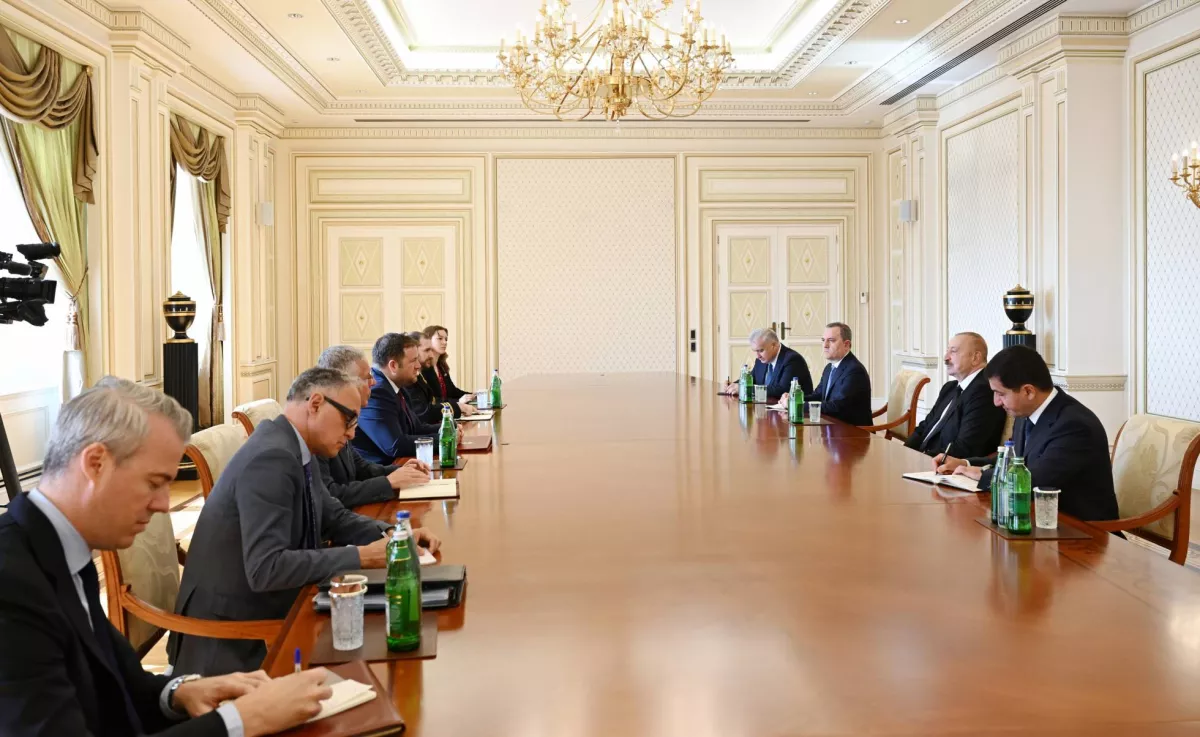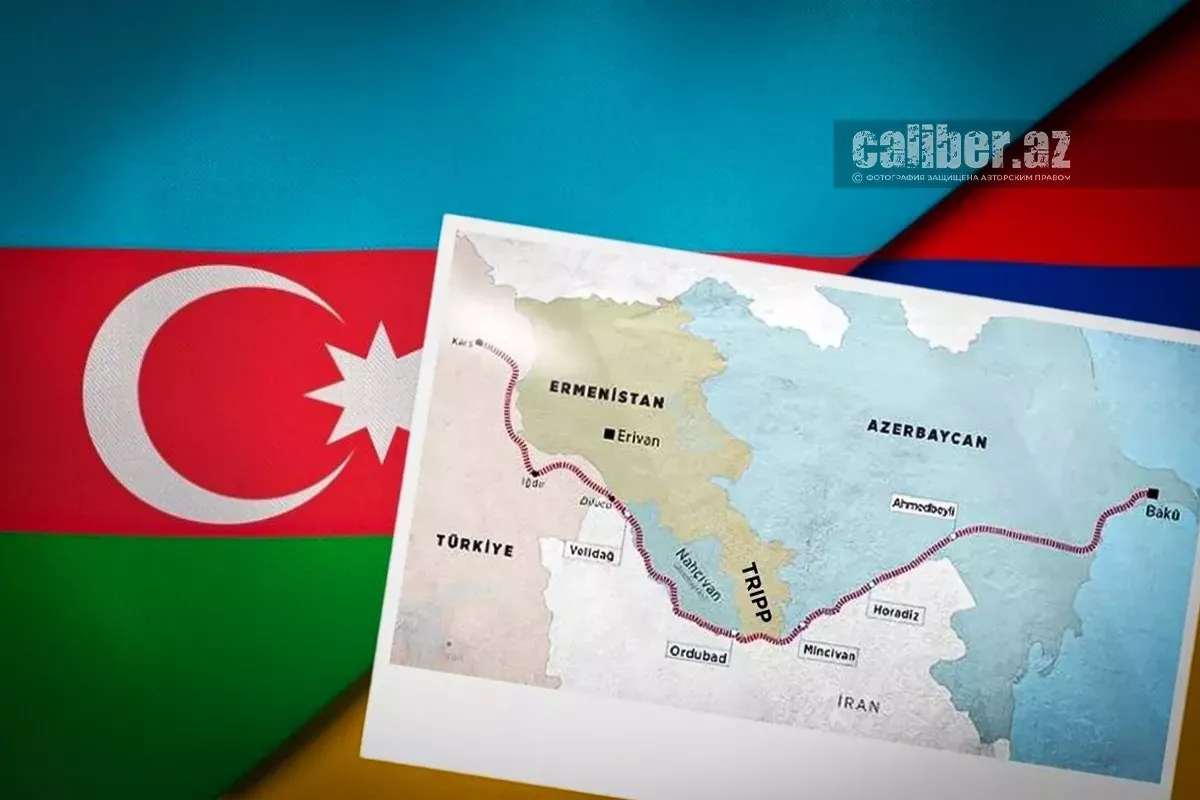“London has elevated relations with Baku to a zone of special significance” British journalist on Caliber.Az
In an exclusive interview with Caliber.Az, British journalist and political expert Yuri Goligorsky discusses London’s growing role in the South Caucasus, its strategic partnership with Baku, and the UK’s stance on global conflicts—from Ukraine and Russia to Israel, Iran, and Europe.

– How does the United Kingdom currently view a number of “hot” conflicts: Ukraine and Russia, Israel, the USA and Iran, Europe and Russia? Does Britain see geopolitical threats to itself in all this, or, as some analysts claim, conditions for the start of a Third World War?
– Regarding the conflict between Russia and Ukraine, the position remains unchanged: regardless of ministerial reshuffles within the Labour government, London provides Kyiv with full support in its struggle against Russian aggression. How effective this support is is another question, but it is sincere and comprehensive.
As for Israel, London is now highly critical of Tel Aviv’s decision to enter the city of Gaza, considering that it puts the remaining Israeli hostages in mortal danger and deprives the residents of Gaza of shelter.
Relations with the United States over the past week were slightly overshadowed by the scandalous dismissal of the UK ambassador to Washington, Peter Mandelson, after it emerged that he had previously maintained friendly ties with the infamous Jeffrey Epstein. But this is only a minor detail against the broader backdrop of strong ties between Washington and London. As I speak to you now, U.S. President Donald Trump and his wife are arriving at Windsor Castle on a state visit. An unprecedented break from protocol – this is Trump’s second state visit. The first took place in 2019. Trump enjoys such ceremonies…

Regarding Iran, there are still differing interpretations of what can be achieved with Tehran: London prefers quiet diplomacy, while Washington leans more towards sanctions. In the context of Russian aggression and belligerence, relations between London and other European countries are strengthening, because there is power in a united stance. Especially now, as Russian drones are already flying over Poland and Romania…
– London has proposed that Baku raise and expand the level of partnership to strategic status. How will this change the geopolitical relations between the two countries, and what impact will it have on the South Caucasus region? Why is this happening now?
– The institution of strategic partnership is purely an American model, designed to establish bilateral relations between states that are not part of the same alliance. For example, such a model exists between the U.S. and Saudi Arabia, which is not a NATO member, yet the level of its relations with Washington, thanks to this agreement, is hardly different from relations within an alliance.
Thus, the strategic partnership between London and Baku signals the beginning of a completely new dynamic between the two states, touching on political, economic, and even defence spheres. Any agreements will be implemented without unnecessary delays; Baku receives a “green light” and special priority. Yes, in some sense, this priority existed before, but now it is acquiring a more systematic character. Crucially, the significance of cooperation with Baku becomes a constant, regardless of which government is in power or the political climate in London. In other words, London has elevated its relations with Baku to a zone of special significance.
Overall, it should not be forgotten that the United Kingdom has been present in the South Caucasus for several centuries. It is quite clear that against the backdrop of new threats, this new format of alliance with Baku gains not only symbolic but also very constructive importance, as London has political, economic, and, in the current situation, military interests in the South Caucasus. These, in turn, align with the interests and strategy of Azerbaijan.

It is also worth noting that the era of détente and “soft” relations is long gone, especially after the annexation of Crimea and the invasion of Ukraine. Today, diplomatic, political, and military “powder” must be kept dry. Strengthening military alliances between friendly states is essential. This applies to the Caspian region, as well as the Mediterranean and Black Seas.
Recently, I was talking with a colleague who is a security specialist. He reminded me of the incident with the British destroyer that was supposed to sail through the territorial waters of the Black Sea from Odessa to Batumi. If you recall, Russia at the time more than hinted—practically demanded—that such passages be coordinated with Moscow. But London stated: “Wait a second, we are in international waters. Moreover, this issue has been coordinated with Kyiv. Even if we pass through territorial waters, these are Ukrainian waters. We are in the waters of a friendly state, so we have nothing to coordinate with Moscow. So, as Vladimir Vladimirovich [Putin] would say, like it or not—we are passing through.”
This is exactly the level of strategic cooperation we are talking about.
And, if I may, let us also touch on the document signed at the White House between Armenia and Azerbaijan. We hope it will open the way for the countries to sign a full-fledged peace agreement, which would radically change the dynamics of regional relations and create new economic opportunities—not only for Armenia, Azerbaijan, and Turkey, but for all countries in the region. Perhaps Moscow and Tehran may be less enthusiastic, but here again, as Vladimir Vladimirovich would say, like it or not…

The Zangezur Corridor is a corridor of peace through which goods will flow from Europe to Asia and back. This is a crucial section. London sees it as extremely important to be fully present in the South Caucasus during this historic period. And this strategic agreement allows the United Kingdom to expand its presence in the region.
– There is an opinion that Europe has lost its political unity, largely because there is no single strong leader. This, some argue, is causing the decline of Europe. How accurate is this view? And what, according to London, should be done?
– There is some truth to this assumption: in Europe, including the United Kingdom, there is no leader of the calibre of Margaret Thatcher today, which affects the broader European situation. Is this the decline of Europe? Historically, Europe has experienced such “declines” more than once. Everything is cyclical—these are historical swings… Europe is going through very difficult times: on one hand, Russia seeks not only to restore the Soviet Union but also to assert dominance over Eastern Europe; on the other hand, the American administration is increasingly stepping back from its role as defender and leader of European unity. Difficult times indeed. But let us remember the inscription on King Solomon’s ring: “This too shall pass!”








